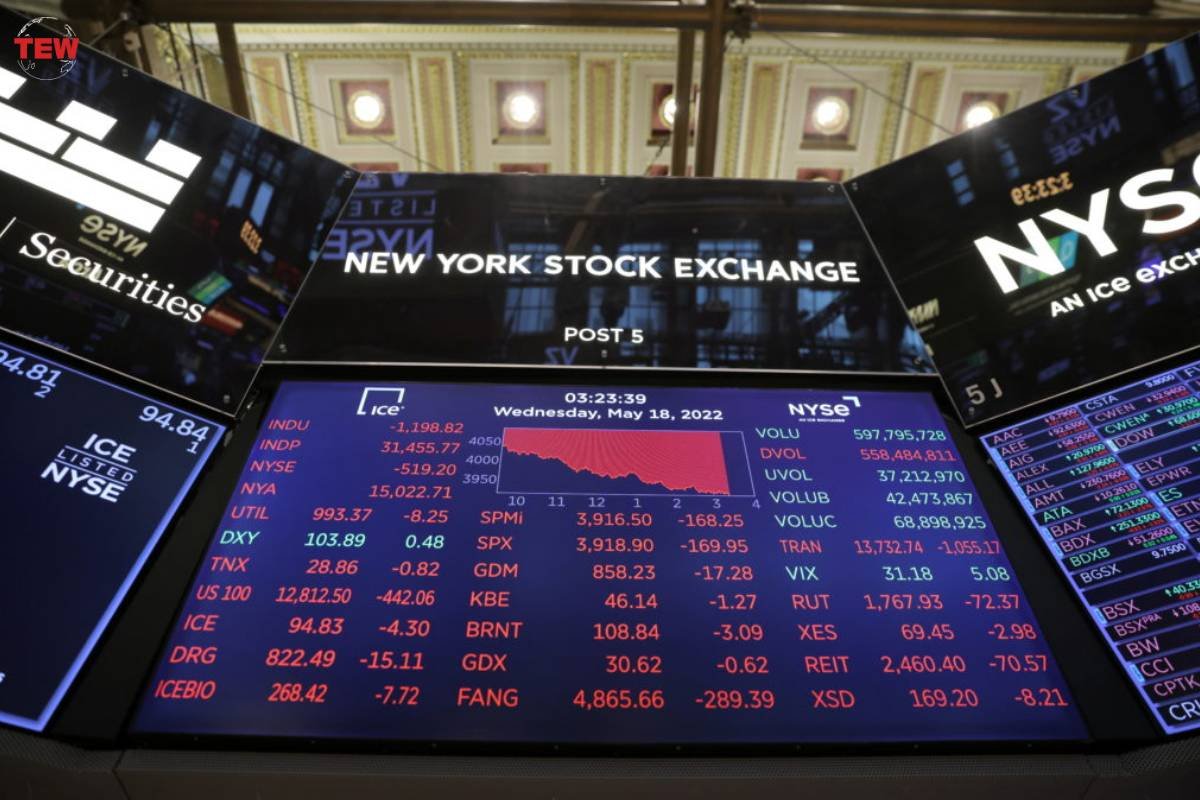U.S. stocks took a significant hit on Thursday, reversing early gains as investors continued to move away from high-priced megacap growth stocks. This shift comes amid the ongoing second-quarter earnings season, which has added to market volatility. All three major U.S. stock indexes ended the day with losses, with the blue-chip Dow Jones Industrial Average experiencing the steepest decline, halting its streak of consecutive record closing highs.
U.S. Stocks Broad Market Sell-Off Amid Rising Volatility and Earnings Reports
The sell-off resumed following a notable drop in the Nasdaq the previous day, which was its largest single-day decline since December 2022. The chip sector also faced a significant setback, experiencing its biggest daily percentage drop since the pandemic-related market panic of March 2020. Despite the day’s downward trend, anxiety remained high among investors. The CBOE Market Volatility Index, commonly known as the “fear index,” reached its highest level since early May, reflecting heightened market uncertainty.
Tim Ghriskey, senior portfolio strategist at Ingalls & Snyder in New York, observed a shift in U.S. Stocks as investor behavior. “What’s different from yesterday is you did see money going into other sectors … but today it’s a pretty broad selloff,” he noted. The Russell 2000 index fell for the second consecutive day after a recent rotation into small-cap stocks had propelled the index to an impressive 11.5% gain over a five-day period, marking its strongest performance since April 2020. “Over the last two weeks, we’ve seen a rotation into other sectors including midcaps and small caps, which have been huge laggards,” Ghriskey added. “But today it’s reversing. The market is flailing around trying to find a direction.”
Investor sentiment has been impacted by political uncertainties and a desire to lock in gains. “Investors are just pulling back and saying, ‘we’re going to cash out now, it’s been a great run.’ They’re unsure what’s going to happen in terms of politics,” Ghriskey explained.
Economic Data and Sector-Specific News Add to Market Turmoil
Economic indicators also contributed to the market’s downtrend. Initial jobless claims data exceeded analysts’ expectations, indicating a softening labor market. This trend is seen as a necessary step towards achieving sustainable inflation control, according to the U.S. Federal Reserve.
The Dow Jones Industrial Average fell by 533.06 points, or 1.29%, to 40,665.02. The S&P 500 lost 43.68 points, or 0.78%, closing at 5,544.59, while the Nasdaq Composite dropped 125.70 points, or 0.7%, to finish at 17,871.22.
Among the 11 major sectors in the S&P 500, healthcare stocks suffered the most significant percentage decline, whereas energy stocks were the only ones to register gains.
In specific company news, Domino’s Pizza saw a sharp decline of 13.6% after reporting quarterly same-store sales that fell short of estimates. Conversely, homebuilder D.R. Horton exceeded profit expectations and reported higher-than-anticipated new home deliveries, though it did tighten its annual forecast. This positive performance led to a 10.1% rise in its shares and propelled the Philadelphia SE Housing Index to a record high.
Warner Bros Discovery shares rose 2.4% following reports of the company considering a plan to separate its digital streaming and studio businesses from its traditional TV networks. However, Netflix experienced a decline in extended trading after posting its quarterly results.
On the New York Stock Exchange, declining issues outnumbered advancing ones by a ratio of 3.43-to-1, while on the Nasdaq, the ratio was 3.49-to-1 in favor of decliners. The S&P 500 recorded 76 new 52-week highs and two new lows, while the Nasdaq Composite saw 160 new highs and 56 new lows.
Trading volume on U.S. Stocks exchanges was 12.14 billion shares, compared to the 11.8 billion average for the last 20 trading days.
In summary, the stock market’s tumultuous performance on Thursday highlights the current instability and investor caution amid economic data releases and the ongoing earnings season. As investors seek clarity and direction, market volatility is likely to persist in the near term.
Also Read : The Enterprise world






